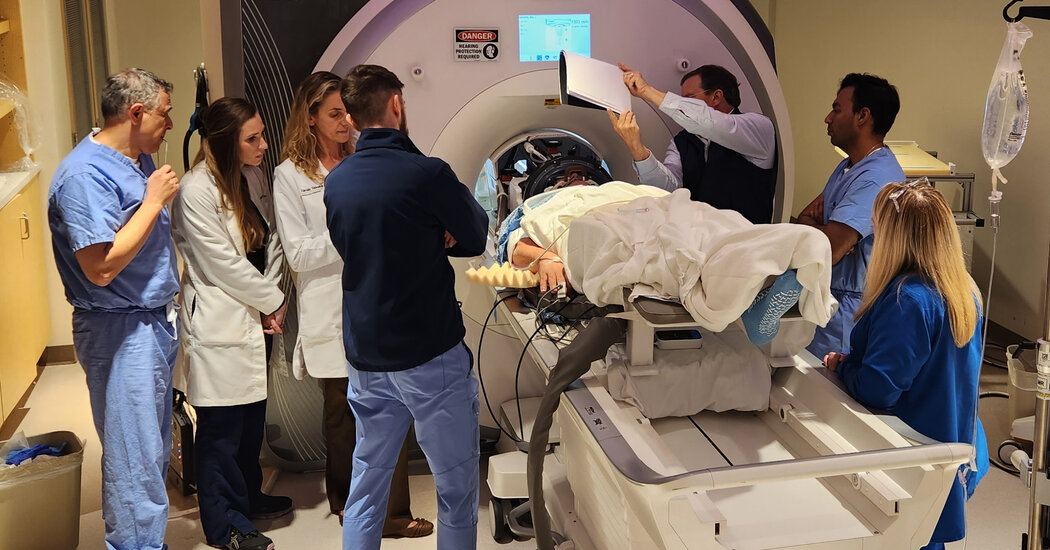
There is a problem with the recently approved Alzheimer’s drug, Aduhelm. It can remove some of the amyloid that forms brain plaques that are hallmarks of the disease. But most of the drug is wasted because it hits an obstacle, the blood-brain barrier, that protects the brain from toxins and infections but also prevents many drugs from entering.
Researchers wondered if they could improve that grim result by trying something different: they would open the blood-brain barrier for a short time while they delivered the drug. Their experimental method was to use highly focused pulses of ultrasound along with tiny gas bubbles to pry the barrier open without destroying it.
The investigators, at the Rockefeller Neuroscience Institute at West Virginia University, reported their results last week in The New England Journal of Medicine. When the barrier was opened, 32 percent more plaque was dissolved, said Dr. Ali Rezai, a neurosurgeon at the institute, who led the study. The group did not measure the amount of antibody getting in — that would require radioactively labeling the drug — but in animal studies opening the barrier allowed 5 to 8 times more antibody to enter the brain, Dr. Rezai said.
The early-stage experiment, which was only tried in three patients with mild Alzheimer’s, was funded by the university and the Harry T. Mangurian, Jr. Foundation.



